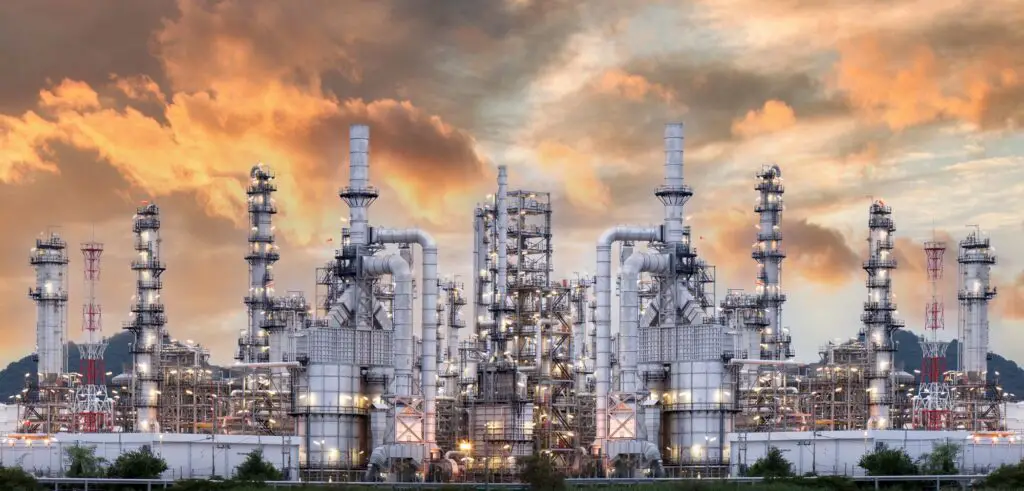Specialty chemicals, also known as performance chemicals, are key components in a variety of applications, even though they might not be as familiar to us as other materials. These chemicals are essential due to their unique characteristics and functionalities that enhance the performance of many products. From the crisp display on your smartphone to the resilient paint on your car, the role of specialty chemicals cannot be denied.
In the field of engineering, the influence of specialty chemicals on the development, efficiency, and maintenance of high-end equipment is significant. This makes them an integral part of progress in various engineering disciplines.
In this article, you’ll learn about the different types of specialty chemicals and understand their essential roles. We’ll explore how these unique compounds power diverse engineering applications.
Understanding Specialty Chemicals
Specialty chemicals are a group of chemical products defined not by their chemical composition but by their function or application. They’re typically manufactured in small quantities but with high levels of technical service, customization, or value addition.
Below are some key types of specialty chemicals:
- Adhesives: These specialty chemicals are used to bond surfaces together. They range from wood glue to high-tech aerospace adhesives that withstand extreme temperatures.
- Agrichemicals: These are used in agriculture to boost crop production. Examples include fertilizers and pesticides.
- Cleaning Materials: These encompass chemicals used in cleaning products, from household detergents to industrial-strength solvents.
- Construction Chemicals: Used in the construction industry, these chemicals include concrete and asphalt additives, waterproofing chemicals, and more.
- Elastomers: These flexible, rubber-like chemicals have diverse applications, from car tires to medical gloves.
- Food Additives: These chemicals are used to improve the taste, texture, or shelf life of food.
Specialty chemicals cover a broad range of applications, and this is just a small sample. Their diversity and flexibility make them an important component in countless products and processes. The area where they perhaps play the most transformative role is engineering, which we will explore next.

The Engineering Perspective
From the macro-scale of construction to the micro-scale of nanotechnology, engineering applications are wide-ranging. Specialty chemicals play a central role in these applications. In many cases, they serve as the critical element in the design and production of high-end equipment, offering solutions where standard materials fall short.
A specialty chemical’s value lies in its performance-enhancing characteristics. These might include superior resistance to heat or corrosion, improved strength or flexibility, or advanced adhesion properties. Such characteristics can mean the difference between a material that fails under stress and one that performs flawlessly.
In an engineering context, specialty chemicals offer the following:
- Enhanced Performance: Chemicals like lubricants and coolants ensure machines run smoothly and maintain optimum operating conditions.
- Design Flexibility: Specialty polymers and composites can be tailored to meet specific design needs, providing engineers with a wide range of material options.
- Durability And Reliability: Specialty coatings and treatments enhance equipment life by protecting against corrosion, wear, and other damaging factors.
- Efficiency: In manufacturing processes, specialty chemicals like catalysts can accelerate reactions, reducing energy consumption and cost.
This crucial role of specialty chemicals demonstrates their significance in engineering, but their applications extend far beyond performance and efficiency. In the next section, we’ll explore these applications, further revealing the importance of specialty chemicals in modern engineering.
Applications Of Specialty Chemicals In Engineering
While the general value of specialty chemicals is clear, the breadth of their applications in specific sectors of engineering truly emphasizes their worth. Let’s explore a few:
- Aerospace And Defense: Here, specialty chemicals such as lightweight composites and fire retardants are crucial. They improve the performance and safety of equipment, from aircraft to defense systems.
- Automotive: Specialty chemicals like lubricants, polymers, and coolants enhance the efficiency, durability, and overall performance of vehicles.
- Electronics: From semiconductors to light emitting diode (LED) materials and battery technologies, specialty chemicals drive innovation and efficiency in this sector.
- Biomedical: Specialty chemicals contribute to advanced solutions such as drug delivery systems and biocompatible materials, enhancing healthcare outcomes.
- Construction: In this industry, specialty chemicals, such as concrete and asphalt additives and waterproofing chemicals, ensure the longevity and performance of structures.
Specialty chemicals are intrinsic to modern engineering, fueling advancements across these sectors and many more. Looking ahead, their role becomes even more compelling as engineering faces new challenges and opportunities.
The Future Of Specialty Chemicals In Engineering
The applications of specialty chemicals are not limited to the present. As engineering evolves and reaches new frontiers, these chemicals will continue to play a central role. Emerging trends signal exciting potential for future applications:
- Renewable Energy: Specialty chemicals are at the heart of advanced solar cells and battery technologies, which are crucial for a sustainable future.
- Smart Materials: The development of self-healing materials, shape memory alloys, and other smart materials will hinge on innovative chemical solutions.
- 3D Printing: This technology’s expansion into metals, ceramics, and composites will be enabled by the development of suitable specialty chemicals.
These emerging trends highlight how integral specialty chemicals will continue to be for future engineering feats. This field promises a journey of discovery, innovation, and progress, with specialty chemicals at the core of it all.
Conclusion
Specialty chemicals serve a critical role in the diverse world of engineering. Their unique properties enhance the performance and longevity of high-end equipment, and their varied applications are pivotal in shaping our contemporary world and beyond.
As engineering expands and confronts new challenges, the significance of specialty chemicals becomes even more pronounced. These chemicals are at the heart of progress in emerging sectors such as renewable energy, smart materials, and 3D printing.
In conclusion, specialty chemicals demonstrate human innovation and our relentless drive for advancement. The future of engineering will continue to be shaped by these unique compounds. Their potential to foster innovation further indicates that their impact on engineering is still unfolding.